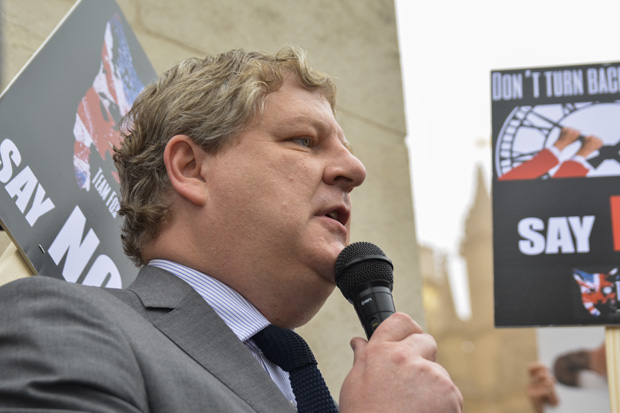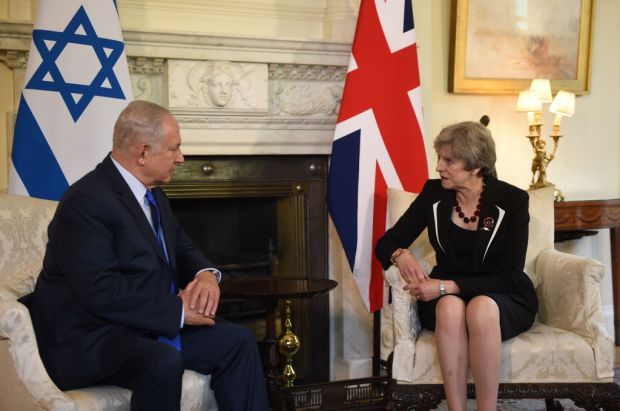There are few quicker ways to annoy an MP than to suggest that they are on holiday when the House of Commons isn’t sitting. Such a suggestion will be met with a tetchy and immediate list of the constituency work they are doing in recess. This week, however, marks the start of the first summer break since the election, so the honourable members should perhaps feel entitled to a rest. Indeed, most MPs who aren’t engaged in a leadership contest will be taking one.
As they sink into their deckchairs, they will have plenty to think about. The election might only have been two and a half months ago, but the dynamics of this parliament have changed, utterly.
Elections will return soon enough. There will be a Scottish Parliament vote and a London mayoral contest next spring. The whole country will vote on Britain’s membership of the EU before the end of 2017. The Tories have already started planning for the next general election — MPs in marginal seats have been organised into an incumbency group and are being advised by deputy chairman, Stephen Gilbert, on how to protect their majorities.
The MPs most in need of a holiday are the Scottish Nationalists. Last summer, they were campaigning for independence and so have not taken a breath for two years. The new contingent of SNP MPs should be pleased with their work in the Commons. Sitting together in tightly packed rows, they support each other with something close to military discipline and stand out in a chamber often deserted by the other parties. They claim to take parliament more seriously than anyone else; on the last day of the Commons’ term, they moved to the near-empty Labour benches in a stunt designed to show that they are the real parliamentary opposition to David Cameron. Given the state of the Labour party, they have a point.
Yet they may end up saving the Union that they seek to destroy. Since devolution, remarkably little attention has been paid to Scottish politics at Westminster. This is partly why even the Scottish independence referendum was regarded as a second-tier issue until it became clear quite how close it would be. But the SNP’s success at the general election has changed all that.
The party’s Westminster leader Angus Robertson now has two goes each week at Prime Minister’s Questions. This might seem like a trivial detail but it is worth remembering how much of the No. 10 machine is geared towards readying the Prime Minister for his most important half hour in the Commons. George Osborne, Michael Gove and several of Cameron’s senior aides devote Wednesday mornings to helping him prepare for this appearance. ‘We’re having to take a lot more interest in the minutiae of Scottish politics than before,’ one of those involved in these prep sessions tells me.
Readying Cameron to face Robertson’s barbs means ensuring he is well-informed about events north of the border — about the SNP’s record at Holyrood. Slowly but surely, the Tory attack machine is turning its attention to being able to rubbish the governing record of the SNP as effectively as they trashed the last Labour government. One adviser in charge of this says that ‘for years, things have been hidden away in the Scottish Parliament. Now, they are moving front and centre.’
This development should help safeguard the Union in two ways. First, it means that Downing Street and the Prime Minister are far more aware of what is going on north of the border. The government is more sensitive to the impact of its policies in Scotland. The second is that the SNP’s record at Holyrood is nowhere near as impressive as its poll ratings suggest. A persistent attack on the SNP’s failures, could — in time — begin to pull back some of the SNP advance. It is hard, however, to see anything stopping the SNP winning another outright majority at Holyrood next year. Some of the Cabinet have taken to grumbling about Cameron’s new Scottish focus. When I asked one secretary of state about a recent political Cabinet discussion about the Holyrood campaign, I was told: ‘Far too much time is being devoted to Scotland at the moment, in my -opinion.’
If the SNP have made the Tories’ concentrate more on Scotland, they are pushing Labour in a different direction. The nationalists taunt Labour for not being a proper opposition, for not being left-wing enough. This approach is working because of the deep divisions in Labour. The party is split between those who think the election defeat demonstrates that it needs to win back trust on the economy and welfare and those who argue that a more left-wing message will uncover a hidden cache of voters.
The former position is clearly the more credible, but the left of the Labour party has been significantly strengthened by the new intake of MPs: 18 of the 48 who defied acting leader Harriet Harman and voted against the government’s welfare bill this week were elected for the first time in May.
The leftward tilt of the new intake reflects the direction the party took under Ed Miliband, the influence of unions on selections and the desire of many constituency Labour parties to reject the ‘third way’ politics of New Labour. This can be seen in the nominations for the leadership: polls show the hard-left Jeremy Corbyn in front.
This clash between Labour’s energised left and its more centrist wing will go on for years, regardless of who wins the leadership. The left, emboldened by what is sure to be a stronger than expected showing from Corbyn, is unlikely to accept a leader trying to move the party back towards the centre.
The ideological nature of Labour’s new intake contrasts with the pragmatism of their Tory contemporaries. Even those new Tory MPs who favour leaving the European Union are keen to avoid the factionalism of past arguments over Europe. The worry for Labour has to be that the terms of debate for this parliament have been set before they’ve elected their new leader.
The SNP’s Westminster contingent will head home for the holidays satisfied that they have made their mark, and made Westminster pay more attention to Scotland. But by doing that, they might have made their great ambition — independence — more difficult to achieve.
Got something to add? Join the discussion and comment below.
Get 10 issues for just $10
Subscribe to The Spectator Australia today for the next 10 magazine issues, plus full online access, for just $10.
You might disagree with half of it, but you’ll enjoy reading all of it. Try your first month for free, then just $2 a week for the remainder of your first year.















Comments
Don't miss out
Join the conversation with other Spectator Australia readers. Subscribe to leave a comment.
SUBSCRIBEAlready a subscriber? Log in